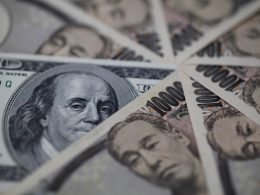The pool-making industry has recently experienced significant turbulence. The leading company in the sector issued a profit warning, sending shockwaves through the market. This announcement has had far-reaching consequences, leading to a substantial decline in the shares of pool makers. This article explores the factors behind this profit warning, its impact on the industry, and the broader implications for investors and stakeholders.
Industry Overview

The pool-making industry has seen substantial growth over the past decade, driven by rising consumer demand for recreational and luxury amenities. Pool makers have benefitted from increasing disposable incomes, the popularity of home improvement projects, and a heightened focus on wellness and leisure. However, the industry is also subject to seasonal fluctuations, economic cycles, and changing consumer preferences, making it sensitive to broader market conditions.
The Profit Warning
The profit warning from the industry leader came as a surprise to many. It cited several factors contributing to the anticipated decline in profits, including supply chain disruptions, rising material costs, and labor shortages. Additionally, the company pointed to a slowdown in new orders and increasing competition as significant challenges. This announcement prompted a reassessment of the industry’s health and future prospects.
Impact on Share Prices
Following the profit warning, shares of major pool makers plummeted. The market reaction was swift and severe, reflecting investor concerns about the industry’s ability to navigate the challenges ahead. The decline in share prices was not limited to the industry leader; it extended to other companies in the sector, highlighting the interconnected nature of the market. The extent of the decline varied among companies, with those perceived as more vulnerable to the identified challenges experiencing sharper drops.
Analysis of Key Factors
Supply Chain Disruptions
The pool-making industry relies heavily on a global supply chain for raw materials and components. Disruptions in this supply chain, caused by factors such as the COVID-19 pandemic and geopolitical tensions, have led to delays and increased costs. Companies have struggled to secure necessary materials, leading to production slowdowns and higher expenses.
Rising Material Costs
Material costs, particularly for metals and plastics, have surged due to increased demand and supply constraints. These rising costs have eroded profit margins for pool makers, who face limited ability to pass on the full extent of these increases to consumers without risking a decline in sales.
Labor Shortages
The industry has also faced significant labor shortages, impacting its ability to meet production targets. The tight labor market has driven up wages, further squeezing profit margins. Companies have had to invest in training and retention programs to maintain their workforce, adding to operational costs.
Slowdown in New Orders
There has been a noticeable slowdown in new orders for pools, attributed to factors such as economic uncertainty, changing consumer priorities, and increased competition. This slowdown has raised concerns about future revenue streams and growth prospects for pool makers.
Increased Competition
The pool-making industry has become more competitive, with new entrants and existing players vying for market share. This increased competition has put pressure on prices and profit margins, as companies strive to differentiate themselves and attract customers in a crowded market.
Comparative Analysis Table
| Factor | Impact on Industry Leader | Impact on Other Pool Makers | Overall Industry Impact |
|---|---|---|---|
| Supply Chain Disruptions | High | Moderate to High | Significant |
| Rising Material Costs | High | High | Severe |
| Labor Shortages | High | High | Severe |
| Slowdown in New Orders | High | Moderate to High | Significant |
| Increased Competition | Moderate to High | High | Significant |
Broader Implications
For Investors
The profit warning and subsequent decline in share prices have underscored the risks associated with investing in the pool-making industry. Investors need to consider the industry’s volatility and the potential for future disruptions. Diversification and a careful assessment of company fundamentals are crucial in navigating this sector.
For Stakeholders
Stakeholders, including employees, suppliers, and customers, are also affected by the industry’s challenges. Employees face job insecurity and potential layoffs, while suppliers may experience reduced orders and delayed payments. Customers may encounter longer wait times and higher prices for pool installations and maintenance.
For the Industry
The profit warning serves as a wake-up call for the pool-making industry to address its vulnerabilities. Companies need to enhance supply chain resilience, manage material costs more effectively, and invest in workforce development. Additionally, innovation and differentiation will be key to staying competitive in a crowded market.
Analysis Table
| Factor | Description | Current Status | Future Outlook |
|---|---|---|---|
| Supply Chain Disruptions | Delays and increased costs due to global supply chain issues | Ongoing | Likely to persist in the short to medium term |
| Rising Material Costs | Increased costs for metals and plastics affecting profit margins | High | Potential for stabilization, but remains a risk |
| Labor Shortages | Difficulty in hiring and retaining workers, leading to higher operational costs | Severe | Expected to improve with economic adjustments |
| Slowdown in New Orders | Reduced demand for new pool installations | Noticeable | Dependent on economic conditions and consumer confidence |
| Increased Competition | More players in the market, driving price competition and margin pressure | High | Expected to continue as market matures |
Comparative Table
| Company | Share Price Decline (%) | Exposure to Key Factors (High/Moderate/Low) | Market Position |
|---|---|---|---|
| Industry Leader | 25% | High | Dominant |
| Competitor A | 20% | Moderate to High | Strong |
| Competitor B | 15% | Moderate | Moderate |
| Smaller Players | 10-15% | Low to Moderate | Niche |
By understanding the intricacies of these factors and their impact on different players within the industry, investors and stakeholders can make more informed decisions and strategies to navigate the challenges ahead.
Conclusion
The recent profit warning from the industry leader has sent ripples through the pool-making industry, leading to a significant decline in share prices. Supply chain disruptions, rising material costs, labor shortages, a slowdown in new orders, and increased competition are key factors behind this development. The impact on investors, stakeholders, and the industry as a whole underscores the need for strategic adjustments and a focus on long-term resilience. As the industry navigates these challenges, careful analysis and proactive measures will be essential to ensure sustained growth and stability.












